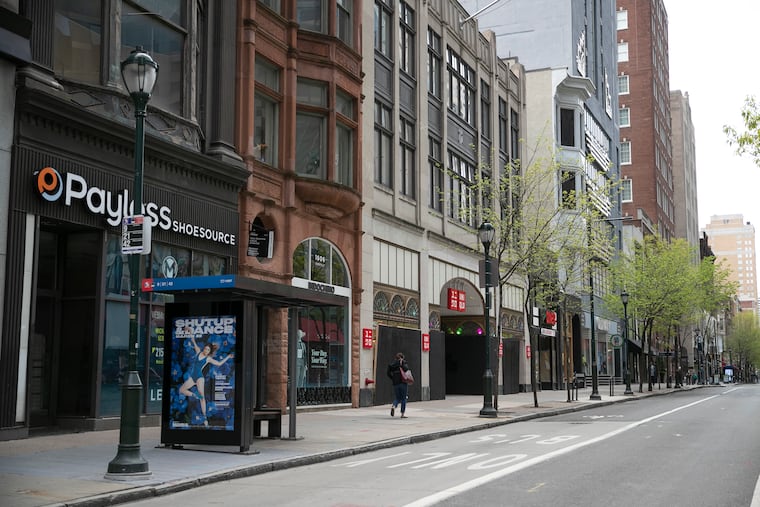Mixed signals keep businesses — and the economy — in the dark | Editorial
Business owners and others deserve clarity and candor from their elected leaders — especially as states and cities begin to reopen.

As Pennsylvania, New Jersey, and other states emerge from social and economic lockdown, inconsistent or unclear messages — most recently about how best to determine Philadelphia’s readiness to proceed — create confusion for an already frustrated public. Trust and cooperation between the government and the governed are essential to fighting COVID-19; in a public health crisis, confusion about when or what is safe erodes that trust.
By late last week, it became clear Gov. Tom Wolf and Philly Mayor Jim Kenney have different takes on whether the city should move from the state’s “red,” or lockdown status, to “yellow,” or partially reopened, on June 5. That’s in part because Wolf’s statewide red/yellow/green system may have worked well initially, but he has since backed away and loosened the criteria for opening, urging all counties to move to the “yellow” phase. Kenney and Health Commissioner Thomas Farley, meanwhile, see firsthand the pandemic’s virulence in the city — where more than 1,200 people have died — and want to slow things down.
Naturally, the pressure from businesses to reopen — especially the tens of thousands of small- and medium-sized firms that remain closed in the region — is enormous.
As the lockdown remains in force, an analysis by Drexel University’s Lindy Institute for Urban Innovation projects the pandemic will reduce annual city wage tax revenue alone by $19.6 billion. The Federal Reserve Bank of Philadelphia reported in May that the region’s economy continues to contract “at a moderate or steep pace” across virtually all sectors, with tourism at “a near zero-level.” And New Jersey retailers report sales declines as high as 89%.
The good news: The restrictions have generally worked to flatten the curve of new cases, hospitalizations, and fatalities. But as much as businesses would like the certitude of firm reopening dates so they know when to bring back employees and order stock, it’s unrealistic to expect absolute certainty. All the more important, then, for leaders to be consistent and clear.
The pandemic had just begun to unfold when Wolf and his administration suffered serious, self-inflicted wounds. An opaque “waiver” system that enabled certain businesses to stay open while similar firms were ordered to shut down — and the governor’s insistence on secrecy about the process — consumed time, energy, and political capital better spent on fighting the pandemic. Meanwhile, New Jersey Gov. Phil Murphy has been able to weather protests by some Shore communities, churches, and a Camden County gym seeking to supersede his reopening guidelines.
The super-regional convocation of six coronavirus-fighting Northeast/Mid-Atlantic governors that made headlines in April and the regularly televised pandemic briefings have promised more than they have delivered. Still, efforts at unity and transparency that fall short are surely preferable to the divisive messages emanating from the White House, where fighting the pandemic often takes a backseat to promoting conspiracy theories and quack remedies. Wolf, Murphy, Kenney, and other elected and appointed leaders deserve credit for attempting to balance public health and a healthy economy. Businesses deserve transparency and clarity in how decisions about reopening get made. They also need to understand that certainty is something no one can promise.